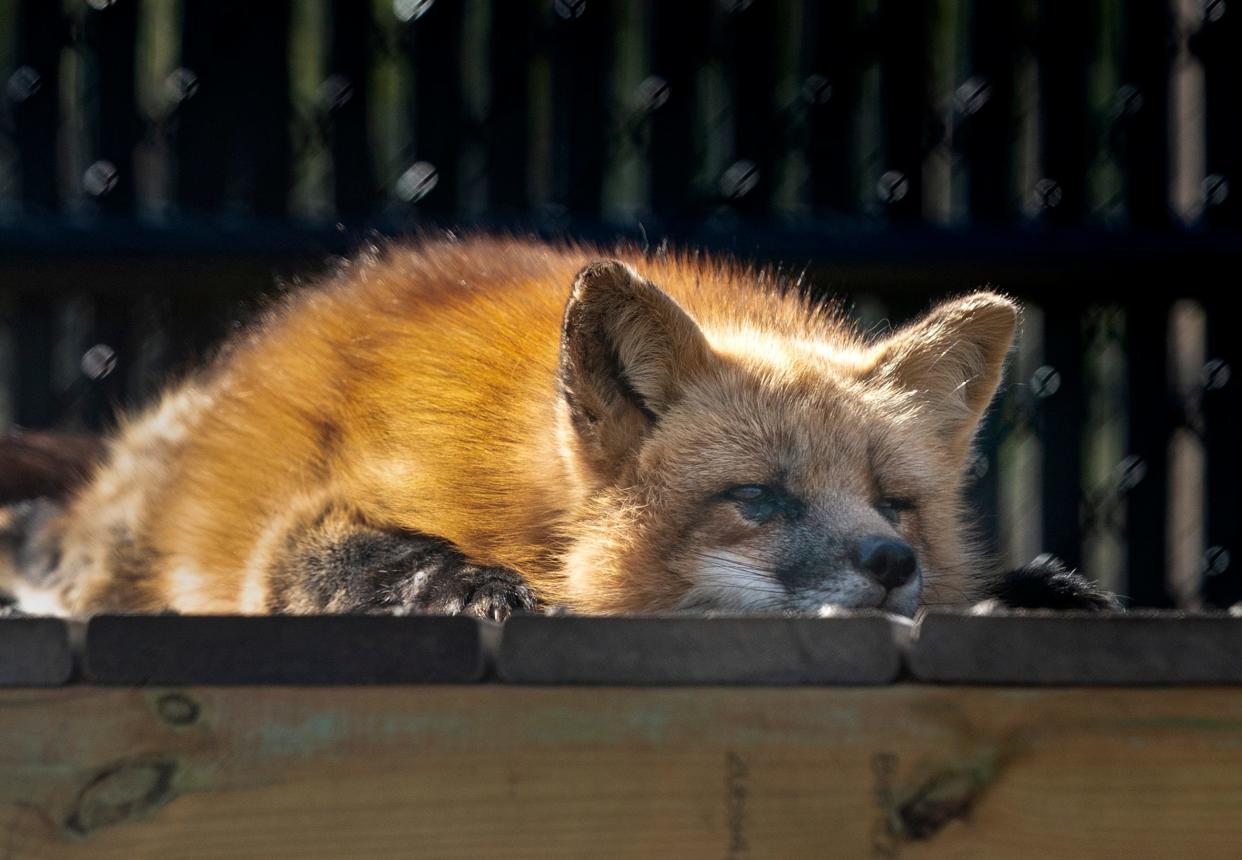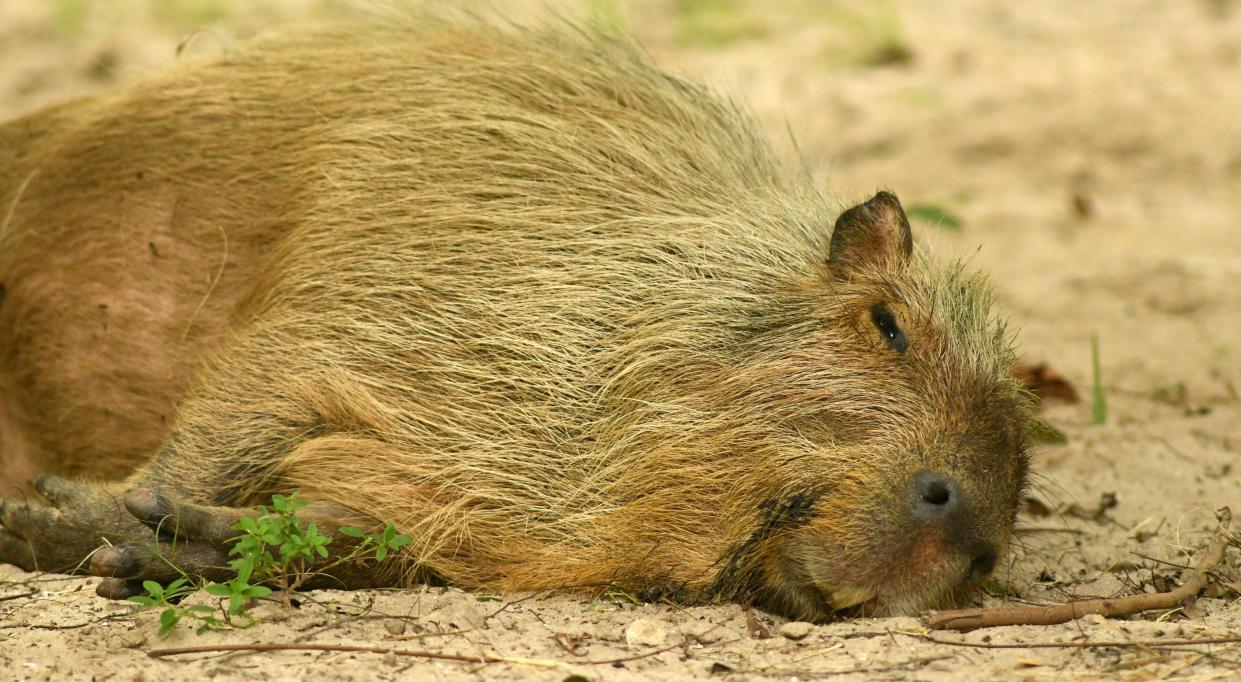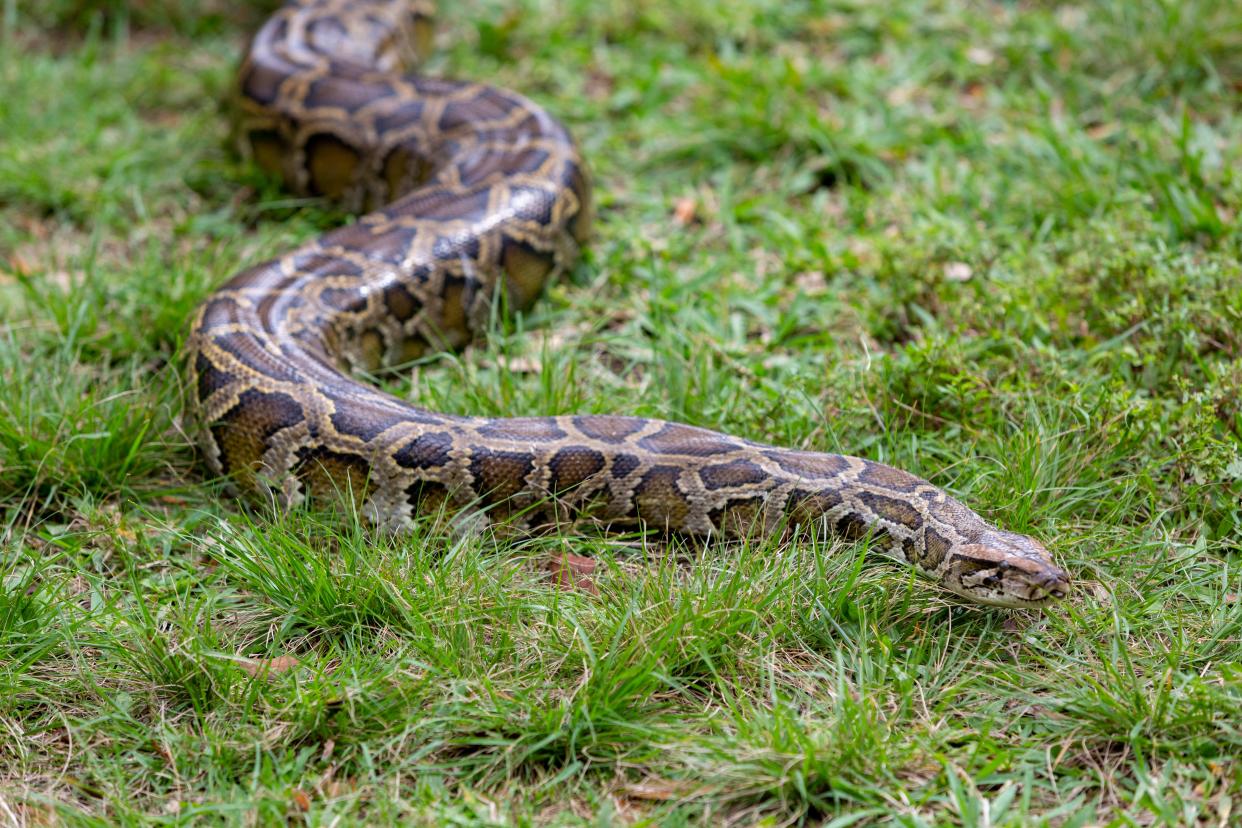How exotic animals end up next store: 5 things to know about the illegal pet trade
JUPITER FARMS — The illegal pet trade is a billion-dollar industry that captures exotic animals or breeds them in captivity and sells them for a profit as pets, at the expense of their safety and wellbeing.
Wildlife advocates in Palm Beach County are trying to combat it.
Busch Wildlife Sanctuary's newest addition is a 5-year-old tan-and-white mountain lion named Charlie. He came to the Jupiter Farms campus after his rescue from an illegal pet trade operation in California. There, someone declawed all four of his paws, leaving him unable to survive in the wild on his own.
Busch Wildlife has rescued about a dozen animals and Lion Country Safari in Loxahatchee has rescued about five from the trade.
Here are five things you should know about the illegal pet trade.

Illegal trade is fueled by industries that use exotic animals, then cast them aside.
Take foxes, for instance.
Many of them come from fur farms, where they are bred and kept in unsafe conditions, but some are sold to pet stores when someone determines they don't have “pretty enough” fur for high-end coats and stoles, according to Amy Kight, Busch Wildlife Sanctuary’s executive director.
Some large cats, such as cougars, mountain lions or panthers, are illegally sold after they are bred into the “cub petting” industry.
This is where people breed them for photo opportunities and interaction with people for a profit, then dispose of them once they grow bigger and become a safety threat. Then they try to sell them on Craigslist or underground sites, where they often end up in the wrong hands, Kight said.

The trade is driven by how trendy exotic animals become on social media.
Not all exotic animals behave the way you see them on social media, and sharing videos and photos of them can unintentionally promote the illegal pet trade, said Haley McCann at Lion Country Safari.
People will have an affinity toward a certain animal they see online and want to make it a pet. This only encourages the trade.
Kight agrees. “You'll have this one really cute, one-in-a-million wild animal end up on Instagram,” she said. “People think they all behave that way, when they don't behave that way at all.”
Kight is seeing this happen with capybaras, a giant rodent native to South America that she said are having their “renaissance moment” right now.
The trade prevails because people don't check the law before they buy.
Florida requires a permit for the ownership of most wildlife species.
However, some pet store workers try to find a loophole around this. They will tell customers that they don’t need a permit to buy foxes, in particular but won't mention the person needs a permit to own one.
“People buy the animal and they don't even realize that they are breaking the law,” said Kight, who said she has heard of this happening firsthand at pet stores.

The illegal pet trade hurts ecosystems.
Exotic animals often escape from homes or are released by their owners. They become invasive species and affect animals native to Florida and their ecosystems.
Pythons in the Everglades are a prime example. Lion Country Safari houses a few that were once caught in the illegal pet trade.
“Not only are most of these animals not equipped to care for themselves, but they are damaging to our environment,” Kight said.
The illegal pet trade contributes to the decline of some species worldwide.
The population of some species of birds, reptiles and primates are declining because of the illegal pet trade, McCann said.
Many of these animals are taken from the wild when they are young and shipped overseas. Some do not survive the capture and transport process, which cuts their population numbers, she said.
Maya Washburn covers northern Palm Beach County for The Palm Beach Post, part of the USA TODAY Florida-Network. Reach her at mwashburn@pbpost.com. Support local journalism: Subscribe today.
This article originally appeared on Palm Beach Post: Illegal pet trade: 5 ways the exotic animal black market hurts us all
